A few weeks ago I went to a Liberal Party women’s high tea at the invitation of a Christian friend. I felt like it was a mistake almost as soon as I arrived. I am not sure if it was growing up in a working-class Labor family that has meant I have never been entirely comfortable around conservative Christian women, and maybe if I had kept my mouth closed, the afternoon would have been more pleasant.
At the “dry” garden party, I was soon cornered with an otherwise pleasant woman, telling me about the globalists, the crazy left and those who conspire with the devil to persecute us. To be fair to the Liberals, she was not a member of the Liberal Party or even a Liberal voter she informed me. Initially I tried to agree with her in part, in an attempt to build a kind of constructive dialogue, but soon my eyes began darting about for ways of escape. Did I mention there was no wine?
In stark contrast, I had coffee this week with a radical feminist ally. Radical Feminists (RadFems) are on “my side” of the gender debate, and we stand shoulder to shoulder on defining women as a biological reality, and the protection of girls and women as a sex class. But the areas where I disagree with RadFems are extensive. I have blocked about a dozen of them on Twitter this week alone, mostly young American RadFems. Their religious fervour frequently overspills to attack my belief that men have a right to have an opinion about their own cultural representations (gender).
Even though my coffee conversation with the RadFem was much more enjoyable than the high tea conversation with the conservative woman, I likewise was unable to find the energy to elaborate my position on some issues, particularly around religious freedom. What I could have said, but didn’t, was that if her political allies hadn’t been so effective undermining our religious rights, we may be able to join together in re-engineer the newly proposed Religious Freedom Bill into a more broadly practical freedom of conscience bill to protect us all.
In the gender, sex and sexuality debate, I have found myself more naturally aligned with gay men and women who are not particularly ideologically or politically invested, but want to establish their rights to speak and advocate for themselves as same sex attracted people.
One of my favourites on the tweets is Jules, a “gender critical” gay man. Like many gay men who comment in the gender debate, Jules is anonymous, I assume because he has a job that he would like to keep. Jules is famously snarky and funny, and has an intelligent compassion that reminds me of a gay man I once loved very much and lost to suicide. I suspect Jules also has religious women in his life that he loves, and this allows him to overcome ingrained suspicion some gays have of Christians for a range of fairly obvious reasons.
Jules and I keep a rare commodity of respect between us that allows friendship and political allyship across the modern hostile lines of sexual politics, even though almost all we talk about is the politics of sex, sexuality and gender. I have to confess; we have occasionally exchanged speculative mutual interest on the ideal amount of chest hair on handsome Mediterranean men.
I get the feeling that there is something about me that neither the Christian lady nor the RadFem understand, that somehow Jules does. He understands that there is a part of me that I am not prepared to yield to politics, a part that is not up for debate. For me, that is the part of me that loves Jesus without measure. The political Christian doesn’t understand this because they place their religion at the centre of their politics, and the RadFem is unlikely to understand because they connect their politics to their core belief systems in the same way that Christians sometimes do.
Even though Jules is an atheist, or an agnostic, he respects that something in humans is sacred, or at least out of reach of the state. Jules understands, perhaps because he is gay, that part of the human experience is not common cultural property but owned by the individual. This used to be bog standard classic liberal position. The same liberalism that was used to enshrine protections of Christians from each other and the state, the same liberalism that was then used by used by gay rights activist to argue for their own emancipation from the state regulation of their sex lives.
Prime Minister Scott Morrison has been following the trend of conservative leaders everywhere who are going weak on foundation liberal principles where they are being infringed by “equity” legislation. There is no greater example of this infringement, than in Tasmania, an example I use often because Tasmania has been stupid enough to allow the removal of sex as a legally protected characteristic.
The Tasmanian Anti-Discrimination Commissioner, Sarah Bold, wrote a smarmy and superior reply to a lesbian woman, who had requested an exemption under the Anti-Discrimination Act to hold a single sex event. The lesbian woman, Jessica Hoyle, claimed she wanted to hold a single sex lesbian event because lesbians have been experiencing sexual harassment from “transwomen”. The issue of lesbians being sexually coerced by “transwomen” has been completely ignored by mainstream media, until a recent article by the BBC.
I have long believed lesbians when they have raised this issue, because I have heard too many reports to deny it. But I think there is a fundamental indignity in asking for single sex protections for women because they are at risk of sexual harassment or rape, even though I have made this argument myself. The main problem with this argument, is that it leads to counter arguments that women are not entitled to spaces free from trans identified males because they have not been raped enough by this group of people. The Sydney Morning Herald have made this exact argument. Essentially, trans activists claim that violations of women by trans identified males is not happening in women’s spaces, and if it is happening, it isn’t that bad, and if it is that bad it’s the price women have to pay to include “transwomen” in the category of “women”. What is being called “trans rights”.
The Tasmanian Anti-Discrimination Commission have stated that no matter what the risk to women, it is unlawful to discriminate against “types of bodies”. Discriminating against types of bodies is the sole basis for single sex protections women have relied on in law and social contracts going back to the beginning of recorded urban society. Gender critical people, believe discrimination between male and female bodies in spaces and sexual behaviour is a birthright. It is also a type of discrimination and protection that should be the right of all women, not just religious women.
When asked to weigh in on the “culture wars” that are leading to overstep of the state into individual freedoms of expression, Morrison has said that “culture war” issues do not matter to most Australians. With an election looming, and possibly with the benefit of polling and political pressure, Morrison now seems to have changed his tune. Apparently, now a born again classic Liberal, Morrison is again tabling religious freedom legislation that was first drafted following the change to the marriage act to allow same sex marriage.
I am in favour of religious freedom, but I don’t think protection for one group from equity legislation is a solution, when equity legislation itself is infringing on a wide range of freedoms. If a lesbian can’t hold a dating event, if a radical feminist academic can’t declare the reality of sex without harassment, then I am of the opinion that the religious people of Australia need to stand up and say “if not for thee, then not for me”. Let’s take a good hard look at ourselves and this overreach of anti-discrimination legislation itself, and how we got here.
If my friend Jules finds his perfect man. with just the right amount of chest hair and he chooses to marry, he couldn’t marry in my church. Marriage between a man and a woman sits at the centre of the Christian creation story and is the symbol of the relationship of Christ with His Church. It is a foundation religious belief in the existence of humans as the image of God as male and female. Sex (biological) and gender (cultural) are so intertwined in the Christian religion, that any attempt to apply equity legislation on our religious beliefs and practices will cross lines that should never be crossed, not just between church and state, but into personal conscience and basic freedom.
Having said that, Jules doesn’t believe in ”healing crystals, past lives, auras, chakras, souls.. alien abductions [gender souls] and other assorted mumbo-jumbo”, so he is unlikely to lose sleep over the sex and gender beliefs of evangelical Christians. The idea that gay people are so fragile, that they all believe the state must extinguish the existence of antithetical beliefs to same sex marriage or homosexual sex is just not true. To attempt to suppress the expression of the beliefs of the Christian church on gender, sex and sexuality will require tyranny, that many gay people simply are not prepared to support.
In a predictable twist, the crossing of the boundaries into personal liberty with equity legislation has meant that some gay people themselves are now calling for the protection of their beliefs, in of all things, biological sex. In a condemnation of this group of dissident gays, a recent article entitled “What’s Up With “Gender Critical” Gay Guys?” even indirectly mentioned my snarky friend Jules. The conclusions of the article are not hard to guess. Gays who do not believe that homosexuals are same “gender” attracted instead of same “sex” attracted, are mean, ignorant and most likely racist and of course right wing.
This week on Twitter there was a picture circulating of a man walking through a transit centre in the UK, minding his own business. The man had a tote bag with the logo of LGB Alliance on it. The seemingly innocuous picture was posted by trans activists who described their anger and disgust at this man. The LGB Alliance is a registered charity in the UK and seeks to centre the needs of same sex attracted people but does not purport to represent transgender people. The mystery “man in transit” was abused and vilified online for his assumed belief, evidenced by the tote, that homosexual men are not inherently connected with gender identity ideology.
Tensions in belief are part of the society our ancestors chose to create. The inoculation from the curse of terrorising each other over belief was the genius of liberalism, of the separation of ideology and state, along with the liberal protections in freedom of belief and expression. I am broadly in favour of religious protections as a last resort, but I am more in favour of addressing the overreach of anti-discrimination legislation.
If politics was one of those cruel childhood team picking situations, I have chosen a range of grass roots feminists, radical feminists, lesbians, gays, and evolutionary biologists for my team. But if religion and ideology are embedded in the state and politics, I am compelled to choose my Christian brothers and sisters. That annoying woman at the Liberal party fundraiser and I will be off to the same gulag. I am first and foremost a follower of Christ and I will not negotiate this part of myself. I want my religious beliefs protected, but more than that, I want to live in a society where the beliefs of my brothers and sisters are held with equal weight to the beliefs of my neighbours. If not, the destruction of our liberty is mutually assured.
Edie Wyatt has a BA Hons from the Institute of Cultural Policy Studies and writes on culture, politics and feminism. She tweets at @MsEdieWyatt and blogs at ediewyatt.com.
Got something to add? Join the discussion and comment below.
Get 10 issues for just $10
Subscribe to The Spectator Australia today for the next 10 magazine issues, plus full online access, for just $10.

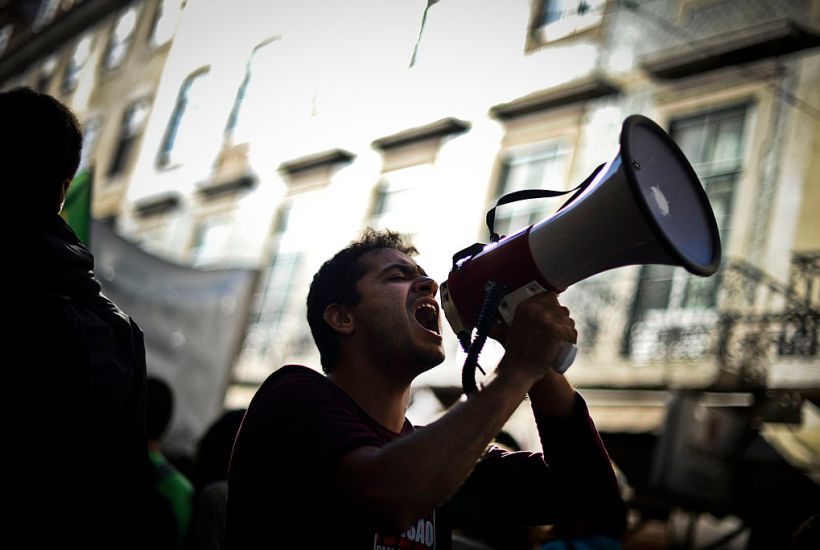
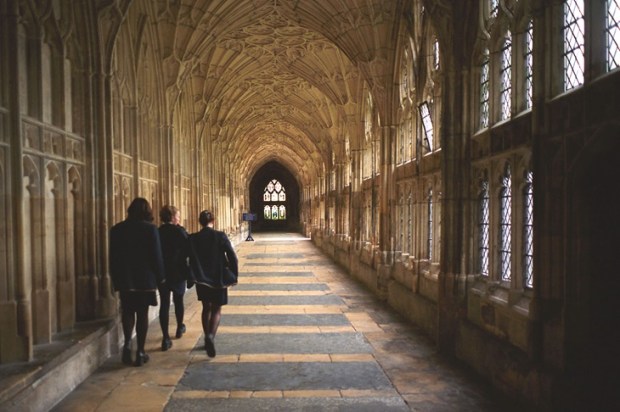
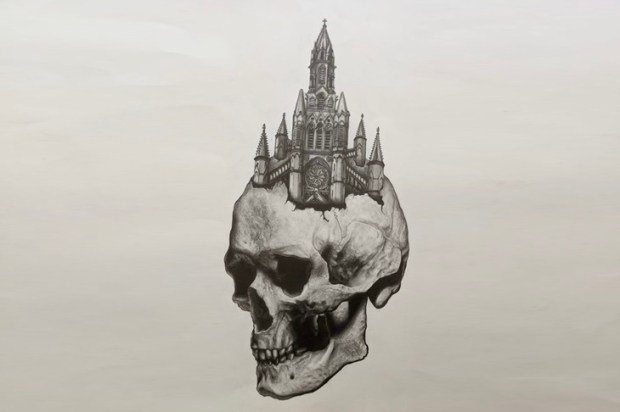

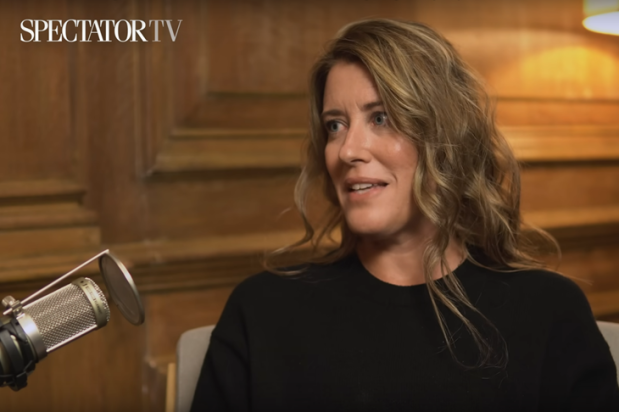

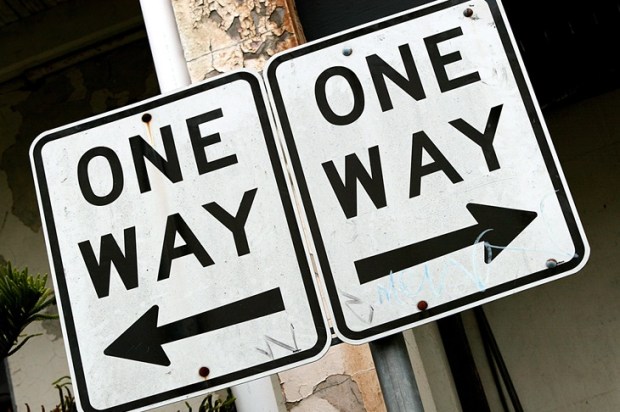


















Comments
Don't miss out
Join the conversation with other Spectator Australia readers. Subscribe to leave a comment.
SUBSCRIBEAlready a subscriber? Log in